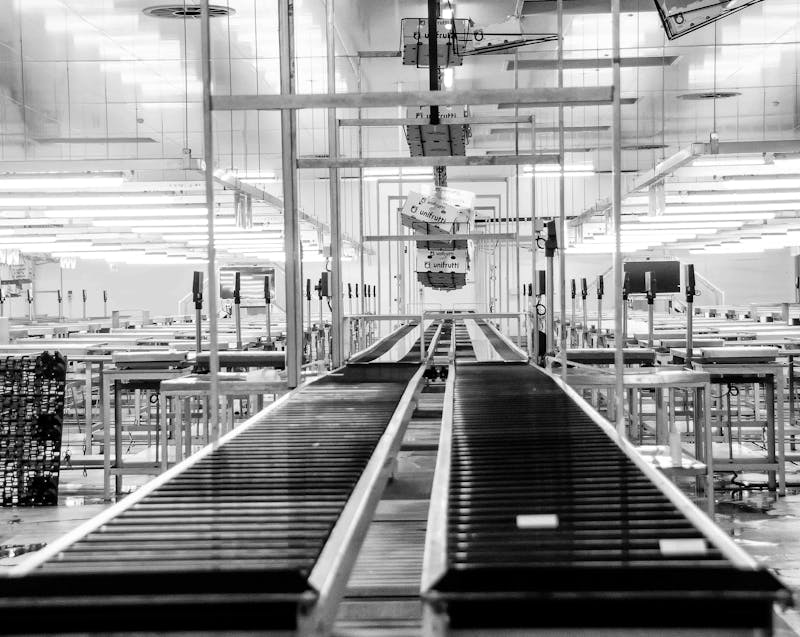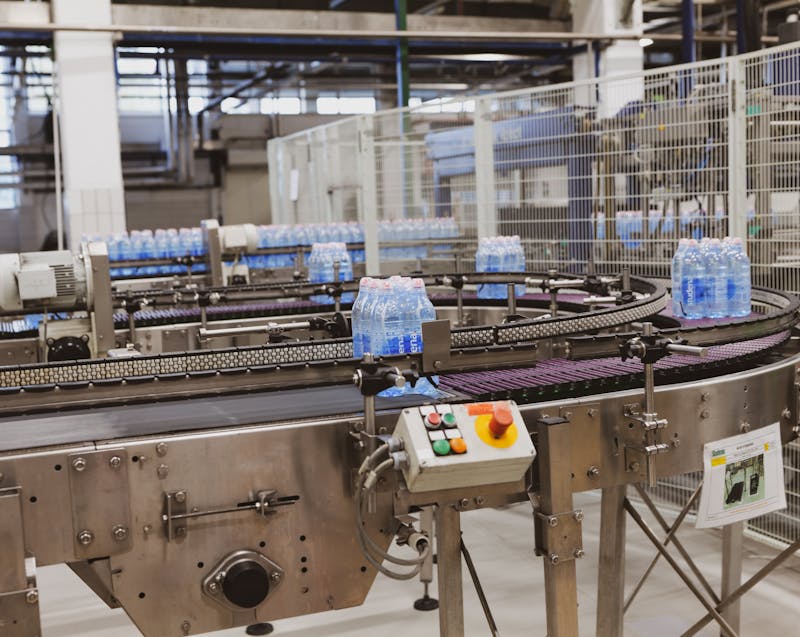- AI enhances decision-making by predicting demand, managing inventory, and preventing costly disruptions.
- Automation streamlines operations, reducing errors, labor costs, and delivery times.
- AI and automation work best together, creating resilient and adaptive supply chains.
- Entrepreneurs gain key benefits such as cost reduction, scalability, better quality control, and improved customer experience.
- Challenges exist, including high upfront costs and cybersecurity risks, but these can be managed with the right IT solutions for the manufacturing industry.
In today’s competitive marketplace, supply chain efficiency is one of the most critical factors influencing the success of manufacturing businesses. Entrepreneurs and business leaders are under increasing pressure to reduce costs, improve delivery times, and maintain product quality—all while navigating global disruptions and rising customer expectations.
This is where artificial intelligence (AI) and automation are making a profound impact. From predictive analytics to smart robotics, these technologies are revolutionizing how manufacturers manage their supply chains.
This article explores how AI and automation are driving change, the benefits they bring, and why entrepreneurs should pay close attention to these innovations.
Why Is AI Becoming Essential in Manufacturing Supply Chains?

Artificial intelligence is no longer a futuristic concept—it has become a practical tool that is reshaping the way manufacturing supply chains function. By leveraging machine learning algorithms, manufacturers can process large volumes of data quickly and accurately, providing insights that improve decision-making.
AI enables companies to anticipate customer demand, manage inventory with greater precision, and predict potential disruptions before they happen. For entrepreneurs, this means fewer costly mistakes and more opportunities to scale operations effectively. Additionally, AI supports predictive maintenance, helping businesses avoid unexpected equipment breakdowns that can stall production. In short, AI provides manufacturers with the agility they need to adapt to market changes faster than ever before.
How Does Automation Improve Efficiency in Supply Chain Management?
Automation in supply chain management goes beyond replacing manual tasks with machines—it is about creating smarter, interconnected systems that reduce errors and boost efficiency. Automated warehouses, for instance, use robotics to streamline picking, packing, and shipping, significantly cutting down on labor costs and delivery times.
For entrepreneurs, this shift translates into greater reliability and consistency. Automation also plays a key role in reducing human error in areas such as order fulfillment and quality checks. By integrating automated systems into production and logistics, manufacturers can ensure smooth operations even during periods of high demand. Moreover, automation enhances transparency, allowing real-time tracking of goods from suppliers to end customers, which is invaluable for maintaining trust and accountability.
Supply Chain Management in Manufacturing Industry: How AI and Automation Work Together
Supply chain management in the manufacturing industry is evolving at a rapid pace, thanks to the combined power of AI and automation. While automation handles repetitive tasks and ensures operational consistency, AI brings intelligence and adaptability to the system. Together, they create a resilient supply chain capable of handling today’s complex challenges.
For example, AI-driven forecasting tools can predict spikes in demand, while automated systems immediately adjust production schedules to meet those needs. Similarly, AI can analyze transportation routes for efficiency, and automated logistics systems can execute adjustments in real time. This synergy not only reduces costs but also provides entrepreneurs with a competitive edge in markets where speed and efficiency are non-negotiable. By adopting these technologies, manufacturing businesses are better equipped to deal with global uncertainties such as raw material shortages or sudden shifts in consumer behavior.
What Are the Key Benefits for Entrepreneurs?

For entrepreneurs considering investment in AI and automation, the advantages are both immediate and long-term. Some of the most notable benefits include:
- Cost Reduction: Automation reduces labor expenses, while AI minimizes losses by improving accuracy in demand forecasting and inventory management.
- Enhanced Agility: Businesses can respond quickly to market shifts and supply chain disruptions.
- Improved Quality Control: AI-driven analytics detect flaws early, ensuring higher product standards.
- Better Customer Experience: Faster deliveries and fewer errors increase customer satisfaction and loyalty.
- Scalability: As businesses grow, AI and automation provide systems that expand seamlessly without a proportional increase in costs.
These benefits underscore why entrepreneurs should view AI and automation not as optional upgrades, but as essential investments for long-term growth.
Overcoming Challenges: What Should Entrepreneurs Consider?
While AI and automation offer immense potential, entrepreneurs must also be mindful of certain challenges. High initial costs, integration with existing systems, and workforce training are common hurdles. Additionally, cybersecurity risks must be addressed as supply chains become more digitized.
To overcome these challenges, businesses can:
- Start with pilot projects before scaling across operations.
- Partner with technology providers specializing in IT solutions for the manufacturing industry.
- Invest in employee training to ensure smooth adoption of new technologies.
- Develop strong cybersecurity measures to safeguard sensitive supply chain data.
By planning strategically, entrepreneurs can ensure that the adoption of AI and automation leads to sustainable benefits rather than unexpected setbacks.
Conclusion
AI and automation are redefining how supply chain management operates within the manufacturing industry. These technologies bring efficiency, resilience, and intelligence to processes that were once prone to error and inefficiency. For entrepreneurs, embracing these advancements is not just about keeping up with competitors—it is about future-proofing their businesses in an increasingly unpredictable global economy. By understanding the transformative role of AI and automation, entrepreneurs can make informed decisions that strengthen their supply chains and position their businesses for long-term success
